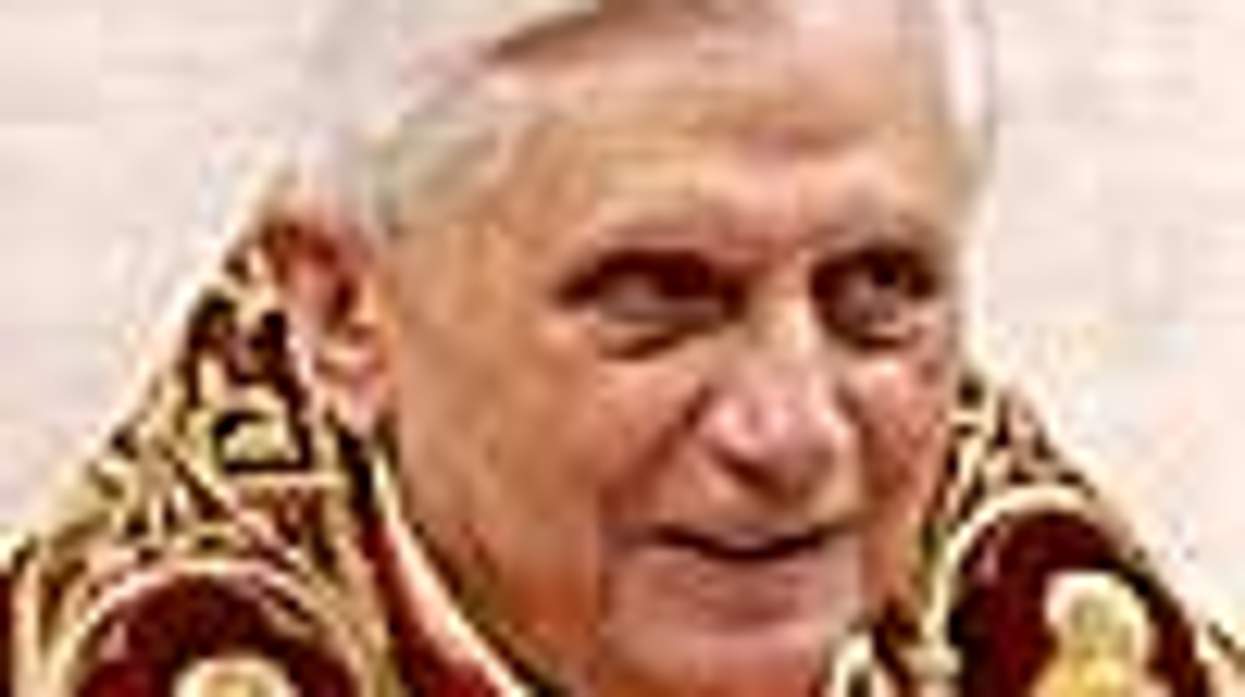For 25 remarkable
minutes, the shepherd of the world's 1 billion
Catholics met in Washington, D.C., with a handful of victims
in the worst scandal to ever tarnish the U.S. Catholic
Church.
One man, abused
as an altar boy, said he placed his hand over Pope
Benedict XVI's heart as he pleaded with him to fix the
problem of sexual abuse of minors.
The pontiff
apologized to his guests for not being perfectly fluent in
English, and ''for everything,'' according to another
victim.
Plans for the
secret meeting were kept quiet. But two Boston-area victims
of abuse shared details of the meeting in interviews late
Thursday with the Associated Press.
Though Benedict
had been expected to address clergy sexual abuse in his
visit to the U.S., the volume and frankness of his remarks
over the first half of his six-day pilgrimage have
been startling.
Benedict
expressed shame and a determination to do better in a talk
with U.S. bishops on the plane ride over, and again
Thursday at a giant open-air Mass.
The meeting that
took place Thursday afternoon between a Mass at
Nationals Park (the city's new baseball park) and an
address to Catholic educators had long been in the
works, but it wasn't on the pope's official schedule.
Cardinal Sean
O'Malley of Boston had high hopes Benedict would accept his
invitation to visit his archdiocese to mark its 200th
anniversary. When that didn't work out, O'Malley kept
in touch with Archbishop Pietro Sambi, who as papal
nuncio represents the Vatican in the U.S., about
bringing Benedict and victims together during the
trip, said the Rev. John Connolly, a special assistant to
O'Malley.
''The desire to
do this was definitely from the Holy Father,'' Connolly
said.
The pope
ultimately asked O'Malley to invite a small group of victims
who were ''both open to meeting him and would derive a
spiritual benefit,'' Connolly said.
He found two good
candidates in Bernie McDaid and Olan Horne, who were
molested by priests when they were boys growing up in the
Boston area.
Both men were
angry at the church but welcomed the opportunity to meet
with church officials as the crisis mushroomed. The issue
has dominated American Catholic life for much of this
decade, starting in 2002 in Boston.
McDaid attended a
meeting in which then-Boston archbishop cardinal
Bernard Law asked for forgiveness. In 2006, Horne spoke of
hope and love as O'Malley began a series of masses and
services meant to bind up wounds.
The two men got
to know each other; eventually their stories were
portrayed in a 2005 Showtime film, Our Fathers.
About three weeks
ago over dinner, Boston church officials asked McDaid
whether he would meet with Benedict if an anticipated
meeting with victims came together.
''I said, 'Of
course,' '' McDaid said.
On Thursday
morning McDaid did something he never does. He went to Mass.
He went to
accompany his mother. But when McDaid heard Benedict
apologize for the sex abuse crisis, ''it took me
totally by surprise. It was so heartfelt and
emotional, I cried.''
Afterward he
found himself in a car with a police escort, barreling
through Washington red lights to the Vatican residence on
Embassy Row, where Benedict was staying.
There he joined a
handful of other victims in pews in the nunciature's
private chapel.
When Benedict
arrived, he prayed and blessed the group, which included
O'Malley and Sambi.
Horne said
Benedict apologized for his English, but then assured them
that he had the words he wanted to express.
''He stood there
feet from us, and you could tell he was heavy, heavy
with responsibility,'' Horne said. ''He looked at us deeply.
You could see he searched for words, that he was
thinking.''
Each victim was
invited to spend a few minutes talking with Benedict.
McDaid went first.
He shook the
pope's hand and told him that as an altar boy he had been
abused by a priest in the sacristy of his parish.
''I said, 'Holy
Father, you need to know you have a cancer in your flock,
and I hope you will do something for this problem; you have
to fix this,' '' McDaid said.
McDaid said that
at that moment he put his hand on the 81-year-old
pontiff's heart.
''He looked down
at the floor and back at me, like, 'I know what you
mean,' McDaid said. ''He took it in emotionally. We looked
eye to eye.''
Horne went
second. Like McDaid, Horne hadn't been to Mass in many
years. None of his children has received the
sacraments that define Catholic identity.
He too had seized
the opportunity to meet Benedict but was not convinced
it would happen.
''Till I saw his
little red shoes,'' Horne said, ''I knew it could go
sideways.''
Horne said he
felt a heavy responsibility to other victims but knew he
could only speak for himself.
''There was an
opportunity for an unscripted, unfiltered opportunity
face-to-face,'' he said.
When he headed
the Vatican's Congregation for the Doctrine of the Faith,
Benedict reviewed the files containing horrific charges
against priests in the United States. But Horne said
what struck him was Benedict's sincerity, warmth, and
sense of understanding that reading reports cannot
summon.
Horne told the
pope it was time to move beyond anger and embrace hope.
''He thanked me
for having the courage and [said] that he was with us on
this path. I asked him to embrace us. He said -- and I can't
recall the exact words -- 'I think I have begun to.'
''There was a
sense we had begun the journey.'' (Eric Gorski, AP)




































































Charlie Kirk DID say stoning gay people was the 'perfect law' — and these other heinous quotes